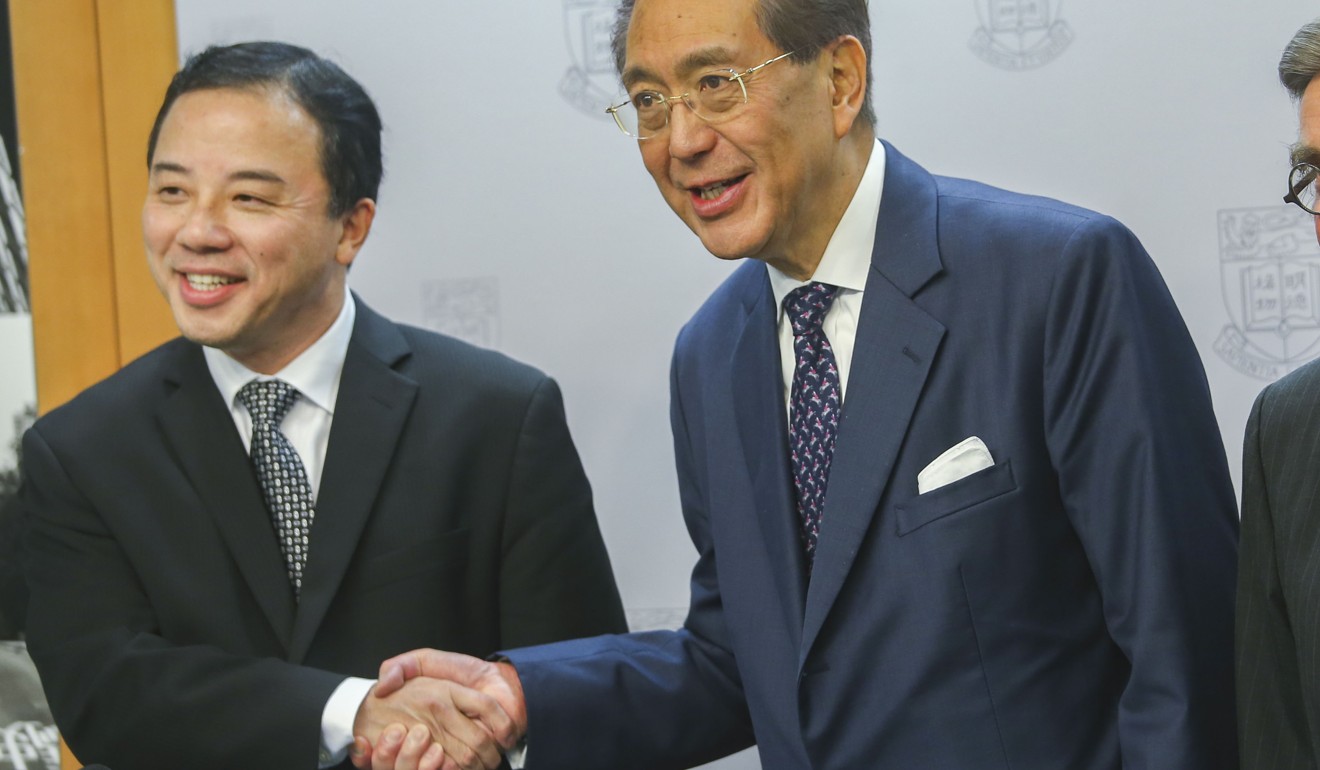
HKU academic independence and free speech could be compromised, staff union says after nominees revealed for council election
- Fears raised that electing ‘yes man’ to governing body will only further empower controversial chairman Arthur Li, instead of representing teaching staff
- Political leanings of new members could mean further endorsement of contentious issue of city leader’s chancellorship
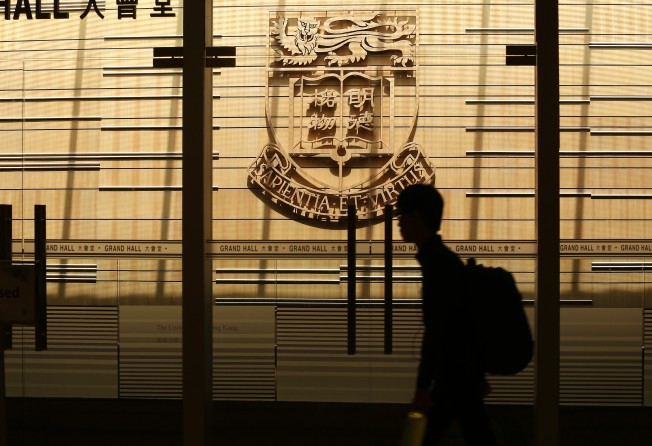
A staff union at Hong Kong’s oldest university has expressed fears over limits to academic freedom and teachers’ voices, after five final nominees in the institution’s governing council election were revealed.
The list of candidates from the University of Hong Kong was put up on Friday, and includes Professor Quentin Yue Zhong-qi, who has shown outright support for the council’s divisive chairman Arthur Li Kwok-cheung. A moderate representative had earlier told the Post he would not be seeking re-election.
Dr William Cheung Sing-wai, chairman of the university’s academic staff association, said he was worried the elected teachers on the council would not speak up for teaching staff.
“The nominees appear to not be willing to speak up against authority, with Yue very likely to just say yes to whatever is said by Li, and HKU president Zhang Xiang,” he said.

“This will affect academic freedom and free speech on campus.”
Teachers at the university will vote on November 7 for three representatives to the council, which is responsible for managing HKU’s financial and human resources, as well as future developments.
The nominees appear to not be willing to speak up against authorities
But in recent years, the councils of publicly funded universities in the city have been increasingly surrounded by controversy, with critics claiming political interference from Hong Kong’s leader, Chief Executive Carrie Lam Cheng Yuet-ngor, who has the power to appoint members.
At HKU, three out of four positions for teachers on its governing council were vacated after liberal academic Timothy O’Leary left the university, with the terms of outspoken member Cheung Kie-chung and Joseph Chan Cho-wai, a moderate, set to expire in the coming months.
These are among only nine posts elected by HKU stakeholders. The remainder comprise ex officio members, and those appointed by Lam, or the council.
Responding this week to queries from the Post, nominee Quentin Yue gave his stamp of approval to controversial council chairman Li, saying he had served his role well.
“I would support him serving the council beyond the age of 74 or more, if his health permits,” Yue said.
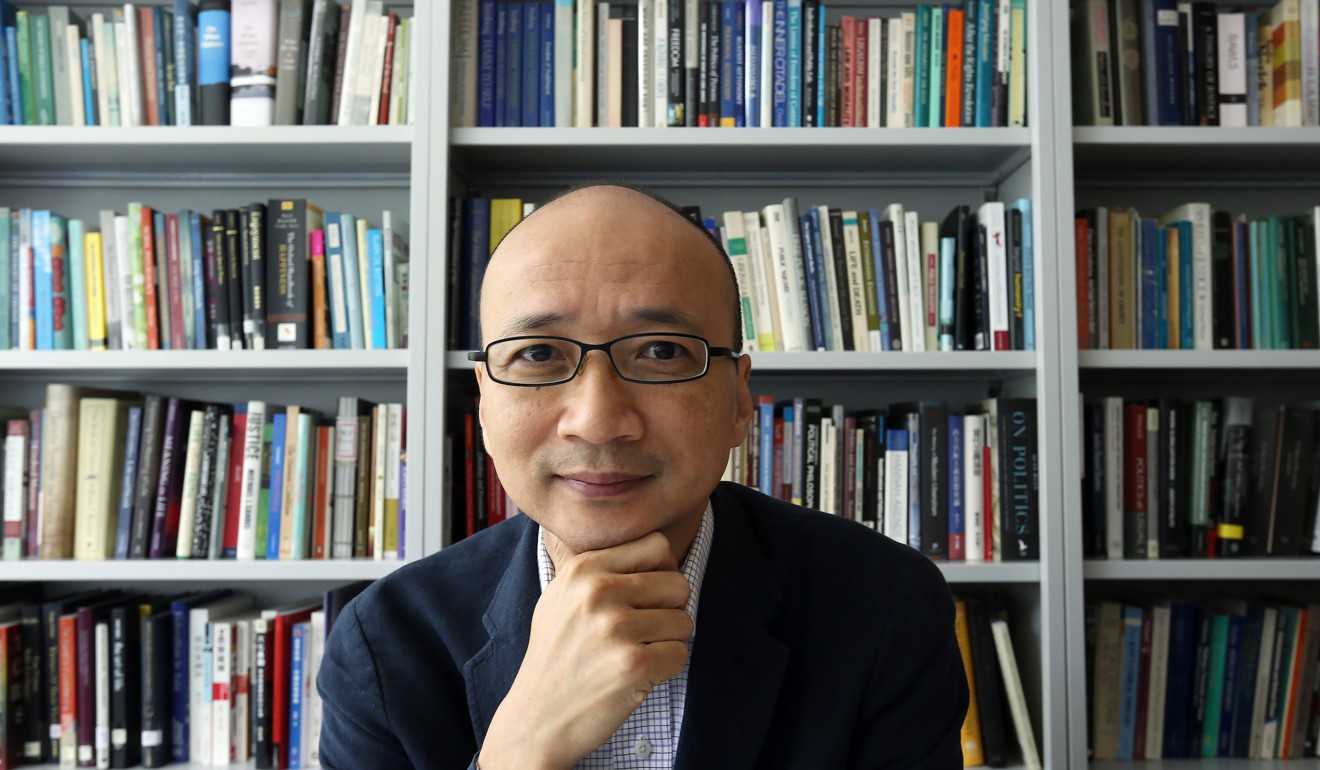
Li’s appointment to the council in 2015 by former chief executive Leung Chun-ying, with whom he had strong ties, was met with fierce objections, and prompted hundreds of students to storm a council meeting in 2016. Li was also openly critical of liberal scholar Benny Tai Yiu-ting, and other student leaders’ involvement in social movements.
Li, who is 73, will come to the end of his present term in office on December 31.
Yue also called the automatic appointment of the city’s chief executive as chancellor of public universities “a heritage or legacy” of HKU, and local society in general.
“The chief executive’s power to appoint council members should be respected because our university is not a private university,” the geotechnical engineering professor said.
Another nominee, Professor Chen Zhiwu, declined to give his verdict on Li for now, citing insufficient knowledge of the present council’s working style and environment. He also echoed Yue’s view on the chief executive’s role.
But Chen, who is director of the Asia Global Institute, expressed hopes for fewer political appointees, citing the model of his former American employer Yale University, where trustees are usually alumni.
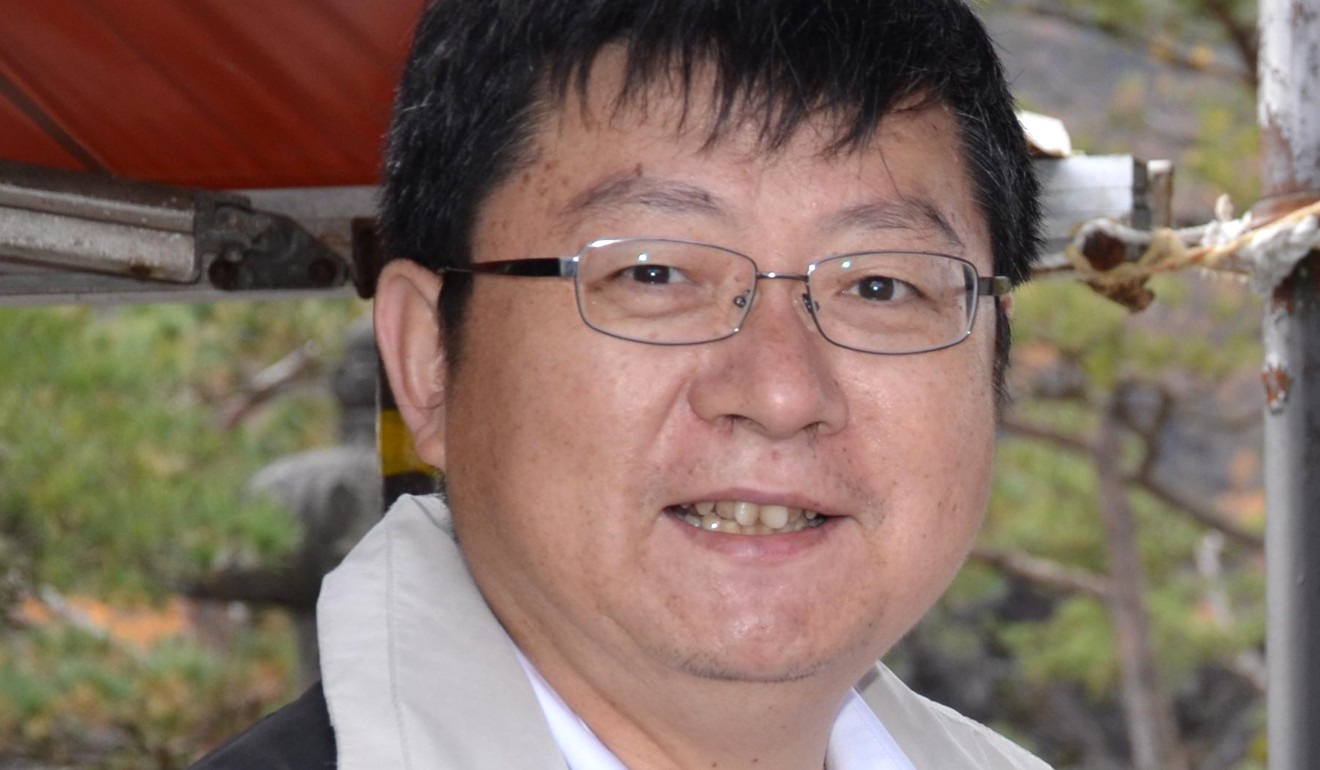
“Currently, there are too many members on the HKU council who don’t have close connections to HKU, and who don’t have enough of a stake in the university,” Chen said.
Of the 24 members on the council, the chairman and six individuals are appointed by the chief executive, with six appointed by the council.
Another nominee, Dr Cheung Sing-hang, also did not give his opinion on whether Li should be reappointed. The associate professor in psychology said an arrangement introduced last year to have a committee advise the chief executive on council chairmanship – but with the city’s top official still having the final say – was a step forward.
Cheung recommended revising the committee to increase the number of council members, especially elected ones, and cutting the number of ex officio members.
The two remaining nominees Dr Richard Kao Yi-tsun, an associate professor in microbiology, and Professor Cynthia Yiu Kar-yung, from the faculty of dentistry, did not reply to queries from the Post by press time.
Student union president Davin Wong said the union would accept the results of the election, but it hoped future council members would acknowledge there were loopholes in the chancellorship of the city’s chief executive.
Chan, a co-organiser of the 2015 silent protest to fight for institutional autonomy, told the Post he decided not to stand for re-election as a council member as he would be teaching as a visiting professor at Princeton University for spring semesters over the next three years.
“The decision is not so much about the council and chairman ... I’m only making the call based on time, my contribution [to the council], and whether it should be me on the job,” Chan said.
As one of the key drafters of the nominating mechanism for the next council chairman, Chan said he had already spent considerable time on council affairs, and his focus was now on academic research. He said it was not the right time to comment on Li or the council.
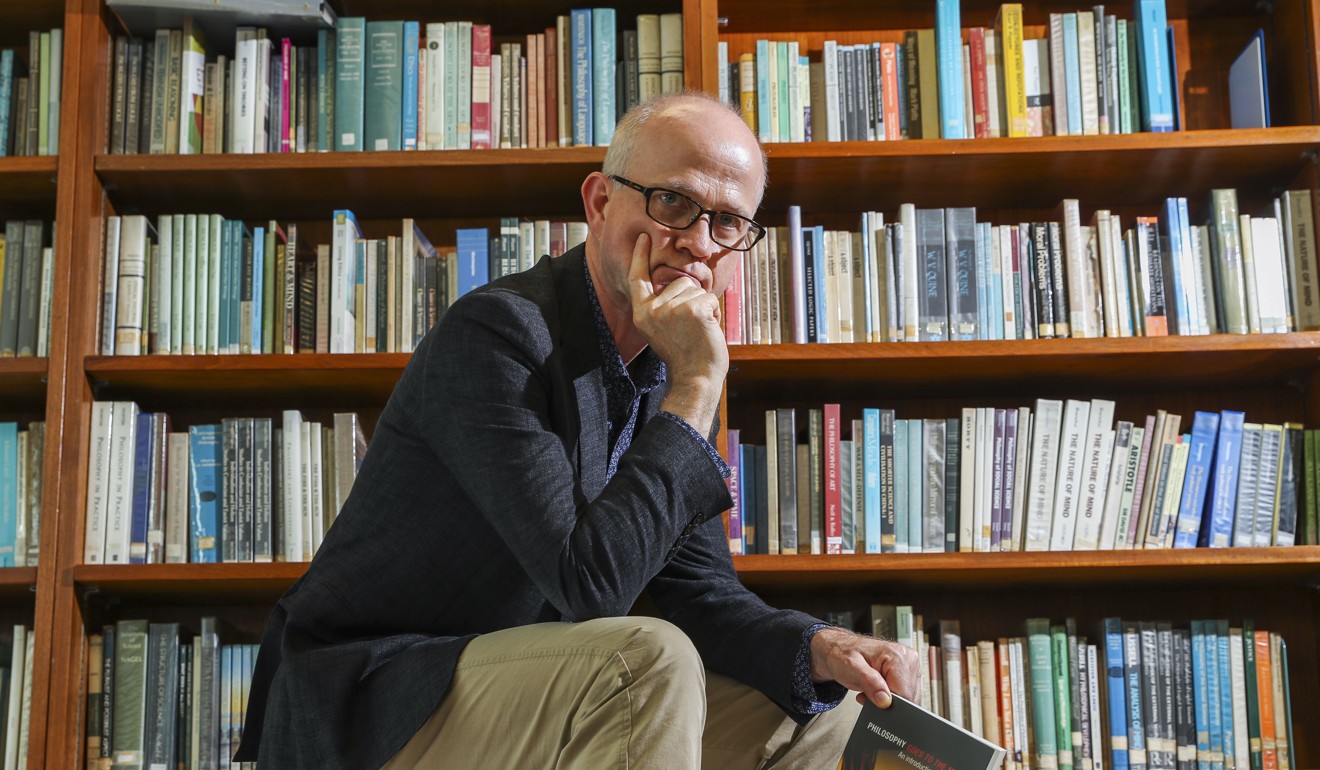
O’Leary, who co-organised the 2015 protest, has left for the University of New South Wales. Cheung Kie-chung, an advocate of academic freedom and associate professor in mechanical engineering, is in custody, a suspect in the death of his wife.
The final teacher representative on the council, top liver transplant expert Professor Lo Chung-mau, will see his term end by April 2021.
Moderate liberal legal scholar Eric Cheung Tat-ming, who was voted into the council in the sole post for full-time employees, said he had not decided whether to seek re-election in January next year.